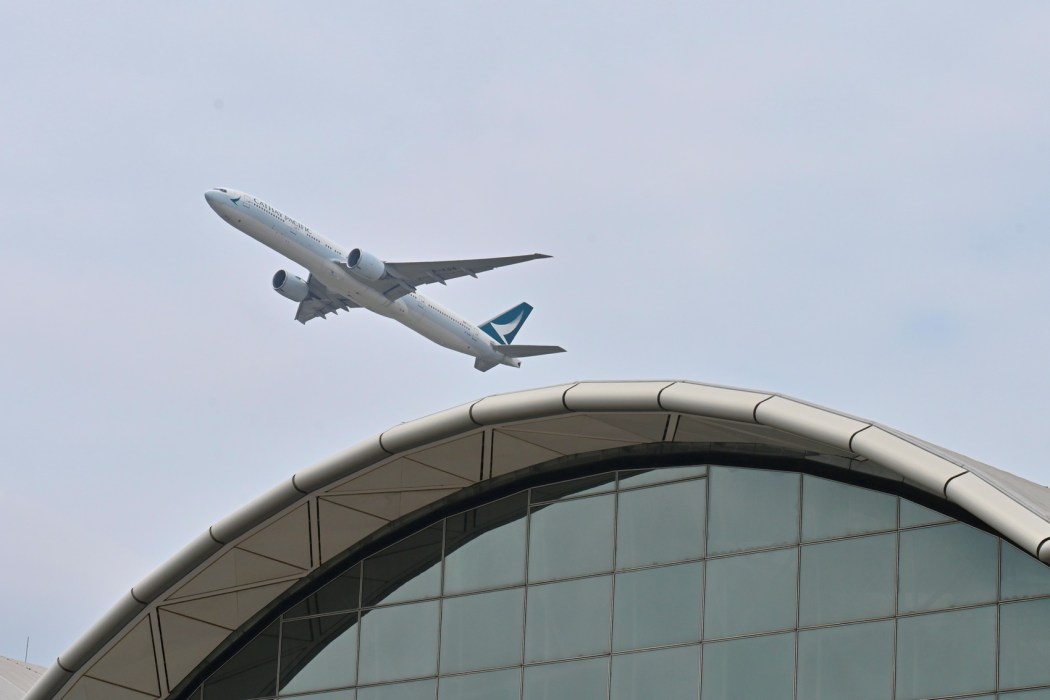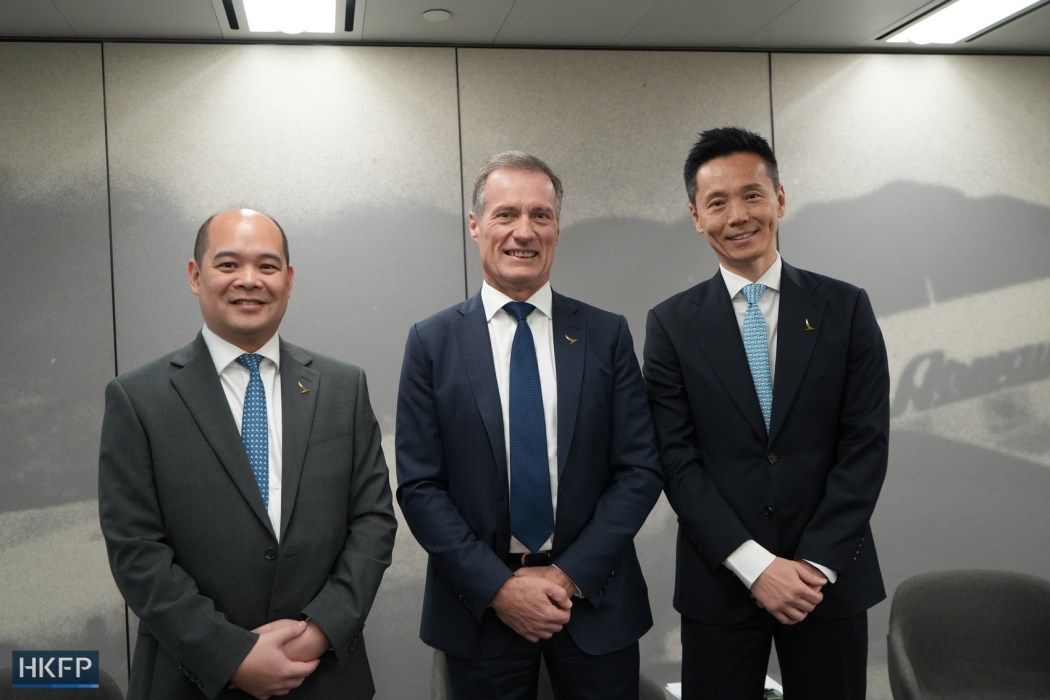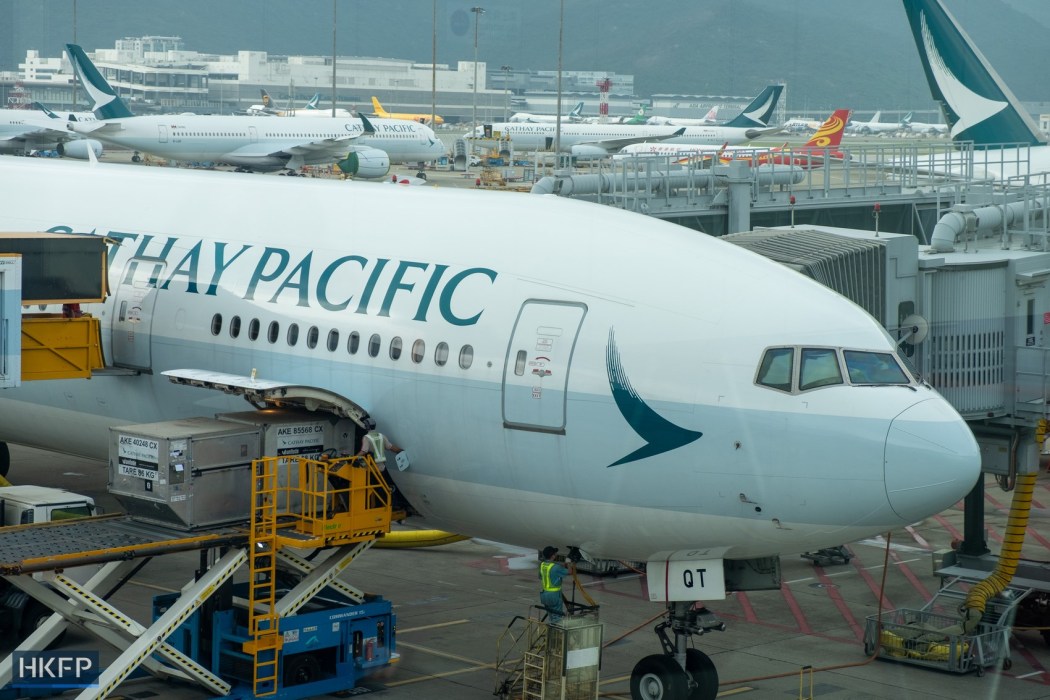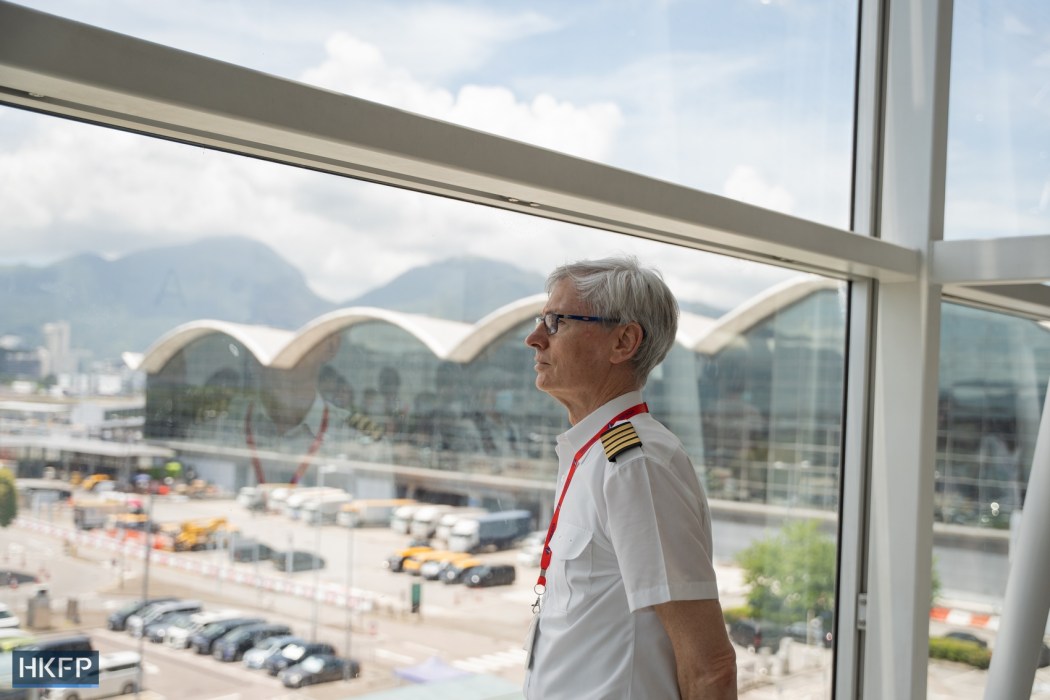Hong Kong’s Cathay Pacific has hired more than 40 trainee pilots from mainland China, after the city’s flagship carrier widened its recruitment programme last year following a wave of resignations during the pandemic. A pilots’ union, however, warned that it would take “years” for the airline to recover after a slew of aircrew left.

The airline announced on Monday that close to 870 mainland Chinese applicants had applied for its cadet pilot programme, which was once restricted to Hong Kong residents. The recruitment expansion came after a pilot union earlier estimated that nearly 1,000 pilots quit during the Covid-19 pandemic.
Cathay Pacific’s flight operations director Chris Kempis said in a media interview on Monday that the company did not have a quota to determine the number or ratio of staff to be recruited from mainland China. The airline was focused on talent in the city, he told reporters.
“I think it’s important to emphasise at this point that we are a Hong Kong airline. Therefore we will always focus on our people in Hong Kong, while supplementing and assisting their growth by looking at the [Greater Bay Area] for cabin crew and beyond the GBA for pilots,” he said.
Kempis added that Cathay Pacific currently had more than 2,600 pilots: around 900 captains, around 1,030 first officers, and around 700 second officers.

Since Cathay Pacific resumed recruitment in the second half of 2021, it had rehired more than 260 former pilots, approximately 70 of whom were captains, according to the airline.
In a statement released by the Hong Kong Aircrew Officers Association (HKAOA) on Monday before Kempis met reporters, the pilots’ union said the carrier remained “very short of experienced pilots” despite the recruitment drive, and it would be “years” before its recovery was complete.
Compared to a roster of 3,885 pilots in the last quarter of 2019, Cathay Pacific was short of around 550 captains and around 730 first officers. Second officers, the most junior pilots who cannot operate a flight without senior personnel, was the only rank that was fully staffed, the union said.
“Given the current rate of training and even allowing for a significant increase in training capacity, restoring capacity to pre-pandemic levels will take at least 3 years to complete, by which time even more capacity will be required for an expanded Hong Kong airport,” the HKAOA statement read.

Kempis said Cathay Pacific did not need as many pilots as it did in 2019, because a new rostering system now allowed pilots to be deployed more efficiently. The airline also centralised its operations in Hong Kong after shutting down overseas pilot bases including in Australia, the US, Canada and Europe in 2021. The flight operations director estimated that the carrier would achieve 80 per cent of its capacity by the second quarter this year.
“With all our pilots in one base in Hong Kong, operating under a single remuneration structure… we’re able to achieve very different ways of working and different levels of the way in which pilots can contribute to the daily task of flying the schedule that we offer to customers,” Kempis said.
In December, Cathay Pacific cancelled more than 40 flights in the days leading up to the new year, citing absences caused by seasonal illness. The pilots’ union said at the time that the shortage of pilots was “at the root” of the flight cancellations and delays.
The airline later apologised for the flight cuts, as Hong Kong leader John Lee urged the carrier to rebuild capacity.

Kempis told the press on Monday that the airline was able to achieve a “smooth schedule” during the Lunar New Year holiday by offering special flying allowances to pilots to recognise that they gave up family time to work over the holiday. Such allowances may be handed out again during the Easter holiday and other peak seasons going forward, he said.
“What we learned is, the most important thing [is] to make sure we have the right pilots positioned with their hours and their reserves to ensure that we get through those peaks,” he said.
Last Thursday, the Cathay Group announced that Cathay Pacific and HK Express had carried more than 2 million passengers in January, with more than 70,000 passengers per day on average.
Chief Customer and Commercial Officer Lavinia Lau said at the time that the company’s mainland Chinese routes “performed exceptionally well,” while outbound traffic to the Philippines also saw strong demand.
Relationship with union
In July 2020, the company informed the union that it would terminate an agreement recognising the union as the sole representative of its pilots. Within a week of the recognition agreement ending, the carrier announced its new contracts to “ensure [Cathay] Group’s survival.”

Kempis on Monday was asked by a reporter if the airline had plans to rekindle the recognition agreement, and how the company communicated with its staff on salary matters. In response, the director of flight operations director said the demographics of the company were changing, with more pilots from Hong Kong recruited. The airline respected the HKAOA’s status as a trade union, but it would focus on direct engagement with all of their pilots, he said.
“We call our pilots homegrown local pilots. Their needs are different to the construct of what the union put together at the time,” Kempis said, adding the company would not enter into any recognition agreement with the union at any time.
Support HKFP | Policies & Ethics | Error/typo? | Contact Us | Newsletter | Transparency & Annual Report | Apps
Help safeguard press freedom & keep HKFP free for all readers by supporting our team

LATEST FROM HKFP
HKFP has an impartial stance, transparent funding, and balanced coverage guided by an Ethics Code and Corrections Policy.
Support press freedom & help us surpass 1,000 monthly Patrons: 100% independent, governed by an ethics code & not-for-profit.










